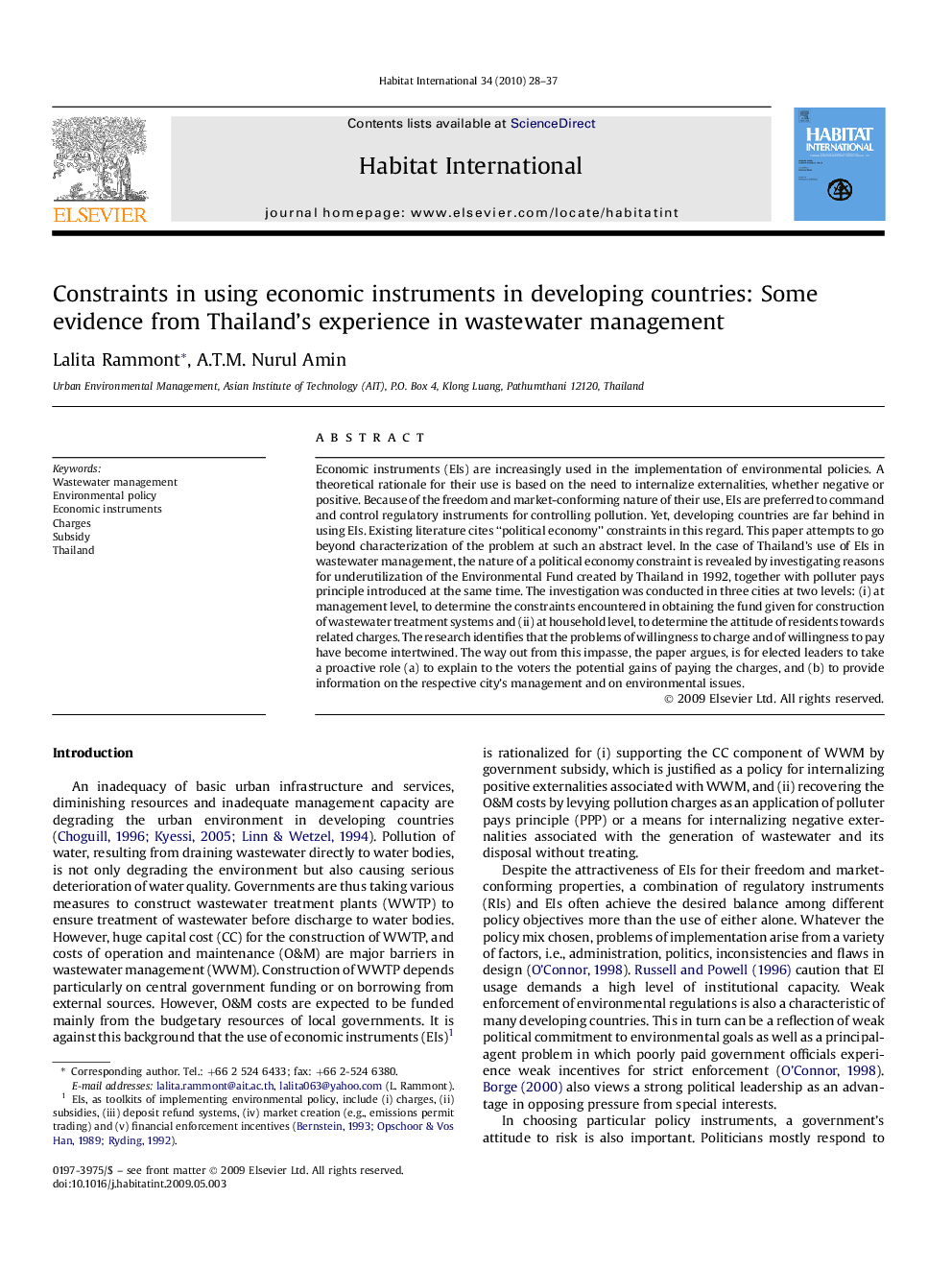| Article ID | Journal | Published Year | Pages | File Type |
|---|---|---|---|---|
| 1048329 | Habitat International | 2010 | 10 Pages |
Economic instruments (EIs) are increasingly used in the implementation of environmental policies. A theoretical rationale for their use is based on the need to internalize externalities, whether negative or positive. Because of the freedom and market-conforming nature of their use, EIs are preferred to command and control regulatory instruments for controlling pollution. Yet, developing countries are far behind in using EIs. Existing literature cites “political economy” constraints in this regard. This paper attempts to go beyond characterization of the problem at such an abstract level. In the case of Thailand's use of EIs in wastewater management, the nature of a political economy constraint is revealed by investigating reasons for underutilization of the Environmental Fund created by Thailand in 1992, together with polluter pays principle introduced at the same time. The investigation was conducted in three cities at two levels: (i) at management level, to determine the constraints encountered in obtaining the fund given for construction of wastewater treatment systems and (ii) at household level, to determine the attitude of residents towards related charges. The research identifies that the problems of willingness to charge and of willingness to pay have become intertwined. The way out from this impasse, the paper argues, is for elected leaders to take a proactive role (a) to explain to the voters the potential gains of paying the charges, and (b) to provide information on the respective city's management and on environmental issues.
